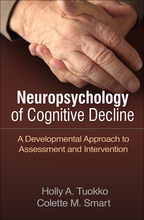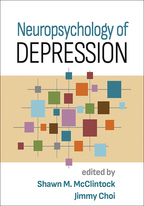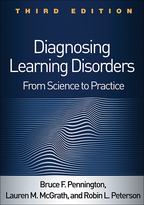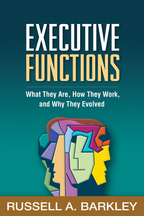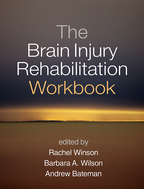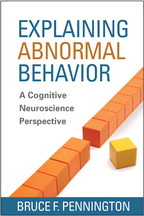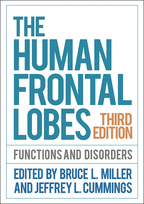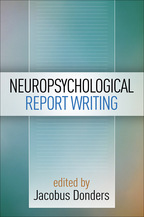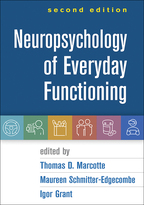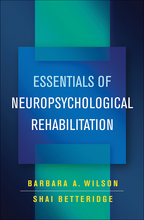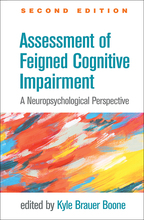Neuropsychology of Cognitive Decline
A Developmental Approach to Assessment and Intervention
Holly A. Tuokko and Colette M. Smart
Hardcovere-bookprint + e-book
Hardcover
orderJune 1, 2018
ISBN 9781462535392
Price: $71.00 387 Pages
Size: 6" x 9"
“Recommended. Graduate students, researchers, and practitioners.”

—Choice Reviews
“This outstanding book is a true gem. Covering central topics in geriatric neuropsychology, it is organized in a pedagogically logical manner and is well written and highly relevant to practice. The book offers an important conceptualization of the experience of cognitive decline that goes beyond diagnostic categories. The discussion of assessment helps the practitioner carefully distinguish the range of normal aging states from static and transition states of mild cognitive decline and dementia. The book describes pharmacologic, cognitive training, and psychological interventions aimed at optimizing well-being, compensatory skill, and functional skill. It can be welcomed as a strong primary resource for any neuropsychologist or student practicing with elders. As the landscape of our aging population changes, this is a valuable resource for practice and teaching that is worthy of ownership and frequent reference.”

—Deborah Koltai, PhD, ABPP/CN, Director, Duke Clinical Neuropsychology Service; Associate Professor, Departments of Neurology, Psychiatry and Behavioral Sciences, and Neurosurgery, Duke University Medical Center
“Tuokko and Smart—both of whom are accomplished researchers and clinicians—provide an excellent evidence-based reference. The integrative, developmentally focused approach to both assessment and treatment helps prepare clinicians, students, and trainees to establish a comprehensive understanding of each patient—not just his or her symptoms—in order to make a meaningful difference in the person’s life. A particularly important feature that sets this book apart from others on cognitive decline is its coverage of cognitive wellness and factors that promote neurological health and protect against cognitive decline. This is a book that neuropsychologists who evaluate and treat older adults, and those preparing for such a career, should read and keep nearby.”

—Shane S. Bush, PhD, ABPP, Department of Psychology, University of Alabama
“Essential reading for neuropsychologists, geriatricians, neurologists, and psychiatrists who provide services for older adults. What makes the book distinctive is its accessible overview of the cognitive aging process that successfully integrates basic and cognitive neuroscience, clinical neuropsychology, and lifespan development approaches. Chapters on intervention are particularly useful, offering practical guidance and tools to improve aspects of cognitive, emotional, and behavioral functioning. A strength of the book, overall, is its emphasis on the relative influences of biological, psychological, and social factors in the stunningly complex, often nonlinear trajectory of cognitive aging.”

—Laura A. Rabin, PhD, Department of Psychology, Brooklyn College of the City University of New York
“Highly readable and with broad coverage of key topics, this volume is sure to appeal to seasoned clinicians as well as students. The book contains a helpful introduction to both protective and risk factors for cognitive decline. It supports interpretation of individuals' current cognitive symptom presentations based on an integrative developmental perspective that is sensitive to a range of potential contributing factors. This framework—coupled with clinical assessment guidelines and engaging case studies—brings to life the process of interpreting often complex assessment scenarios. The distillation of empirical research on types of interventions suitable for specific neuropsychological presentations is extremely useful. A valuable resource.”

—Nancy A. Pachana, PhD, FASSA, Codirector, Aging Mind Initiative, University of Queensland, Australia
—Choice Reviews
“This outstanding book is a true gem. Covering central topics in geriatric neuropsychology, it is organized in a pedagogically logical manner and is well written and highly relevant to practice. The book offers an important conceptualization of the experience of cognitive decline that goes beyond diagnostic categories. The discussion of assessment helps the practitioner carefully distinguish the range of normal aging states from static and transition states of mild cognitive decline and dementia. The book describes pharmacologic, cognitive training, and psychological interventions aimed at optimizing well-being, compensatory skill, and functional skill. It can be welcomed as a strong primary resource for any neuropsychologist or student practicing with elders. As the landscape of our aging population changes, this is a valuable resource for practice and teaching that is worthy of ownership and frequent reference.”
—Deborah Koltai, PhD, ABPP/CN, Director, Duke Clinical Neuropsychology Service; Associate Professor, Departments of Neurology, Psychiatry and Behavioral Sciences, and Neurosurgery, Duke University Medical Center
“Tuokko and Smart—both of whom are accomplished researchers and clinicians—provide an excellent evidence-based reference. The integrative, developmentally focused approach to both assessment and treatment helps prepare clinicians, students, and trainees to establish a comprehensive understanding of each patient—not just his or her symptoms—in order to make a meaningful difference in the person’s life. A particularly important feature that sets this book apart from others on cognitive decline is its coverage of cognitive wellness and factors that promote neurological health and protect against cognitive decline. This is a book that neuropsychologists who evaluate and treat older adults, and those preparing for such a career, should read and keep nearby.”
—Shane S. Bush, PhD, ABPP, Department of Psychology, University of Alabama
“Essential reading for neuropsychologists, geriatricians, neurologists, and psychiatrists who provide services for older adults. What makes the book distinctive is its accessible overview of the cognitive aging process that successfully integrates basic and cognitive neuroscience, clinical neuropsychology, and lifespan development approaches. Chapters on intervention are particularly useful, offering practical guidance and tools to improve aspects of cognitive, emotional, and behavioral functioning. A strength of the book, overall, is its emphasis on the relative influences of biological, psychological, and social factors in the stunningly complex, often nonlinear trajectory of cognitive aging.”
—Laura A. Rabin, PhD, Department of Psychology, Brooklyn College of the City University of New York
“Highly readable and with broad coverage of key topics, this volume is sure to appeal to seasoned clinicians as well as students. The book contains a helpful introduction to both protective and risk factors for cognitive decline. It supports interpretation of individuals' current cognitive symptom presentations based on an integrative developmental perspective that is sensitive to a range of potential contributing factors. This framework—coupled with clinical assessment guidelines and engaging case studies—brings to life the process of interpreting often complex assessment scenarios. The distillation of empirical research on types of interventions suitable for specific neuropsychological presentations is extremely useful. A valuable resource.”
—Nancy A. Pachana, PhD, FASSA, Codirector, Aging Mind Initiative, University of Queensland, Australia

